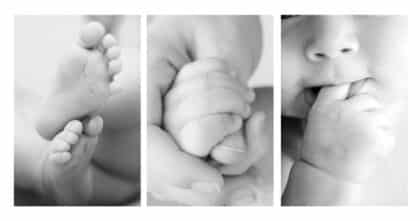Did you know that when you visit us for a check-up, your exam includes an oral cancer screening? That’s because sadly, oral cancer affects over 30,000 Americans annually. That’s more than a quarter of Camp Randall! However, less than 15% of Americans report ever having had an oral cancer screening. So that’s why here at Affiliated Dentists in Madison, we screen for overall oral health, beyond just the health of the teeth, at every exam. Because like all cancers, patient outcomes improve with early detection. However, along with having regular screenings, knowing oral cancer risk factors and how to minimize them is also an important step you can take to reduce your risk for this disease.
Oral Cancer Risk Factors
- Smoking
- High Alcohol Consumption
- Poor Diet
- Viral Infection
- Ill-fitting Dentures
Quit Smoking to Reduce Your Risk
It’s no secret that smoking is terrible for your oral health. Along with increasing your risk of cavities and gum disease, smoking also greatly increases your risk of oral cancer. Smokers are about ten times more likely to develop oral cancer than non-smokers. In fact, 90% of mouth cancer patients use tobacco in some form. And the more you smoke, the greater your risk is.
The good news is that even if you have smoked in the past, quitting can significantly decrease your risk for developing oral cancer. After ten years, ex-smokers reduce their risk for oral cancer to that of non-smokers. Now, that’s a great incentive to quit tobacco!
Avoid Drinking 3 or More Units of Alcohol a Day
In addition to tobacco use, high alcohol consumption is another risk factor for oral cancer. Consuming three or more units of alcohol a day increases your chances of developing it. (Example: a 5 oz. glass of wine contains 2 units of alcohol.)
Additionally, if people who drink also smoke, their risk for oral cancer greatly compounds. Those who both smoke and drink are more than 35 times more likely to develop oral cancer than non-smokers and non-drinkers!
Quitting tobacco and limiting your alcohol intake are the most important steps you can take to help avoid developing oral cancer.
Follow a Diet Rich in Fruits and Vegetables
Although the link between diet and cancer is complex, it’s thought that 10-15% oral cancers are caused by eating an unhealthy diet. Poor diets often go hand-in-hand with smoking and alcohol consumption.
To help reduce your risk of oral cancer, follow a diet that is rich in fruits and vegetables. Diets high in these types of foods are linked with a lower risk of oral cancer.
Viral Infection has Been Linked to Certain Types of Oral Cancer
Another factor that increases the possibility for oral cancer is Human Papilloma Virus or (HPV). HPV infection has been linked to some types of oral cancer and is well recognized as a cause of cervical cancer, possibly accounting for 20-30% of oral cancer cases. These patients tend to be younger and non-smokers or non-drinkers. However, HPV-positive oral cancers tend to have a better prognosis than cancers caused by smoking or alcohol.
Visit Your Dentist if You Have Ill-fitting Dentures
Ill-fitting dentures are also a risk factor for developing oral cancer. Poorly fitting dentures can trap tobacco, alcohol, and other substances underneath them, causing irritation and inflammation in the mouth. Dentures can also rub the gums, resulting in sores and infections. Inflammation, infection, and sores are all associated with oral cancer.
If your dentures have been bothering you, be sure to visit your dentist to make sure they’re fitting properly and are in good condition.
For further reading: What are Signs of Oral Cancer?
General Dentistry in Madison, Wisconsin
April is Oral Cancer Awareness Month, which is a great time to schedule your regular check-up which includes an oral cancer screening. Among other services, Affiliated Dentists provides dentures and general dentistry in Madison, Wisconsin. To schedule your appointment today, click here.
Oral Cancer Risk Factors brought to you by Dr. Mark Gustavson


